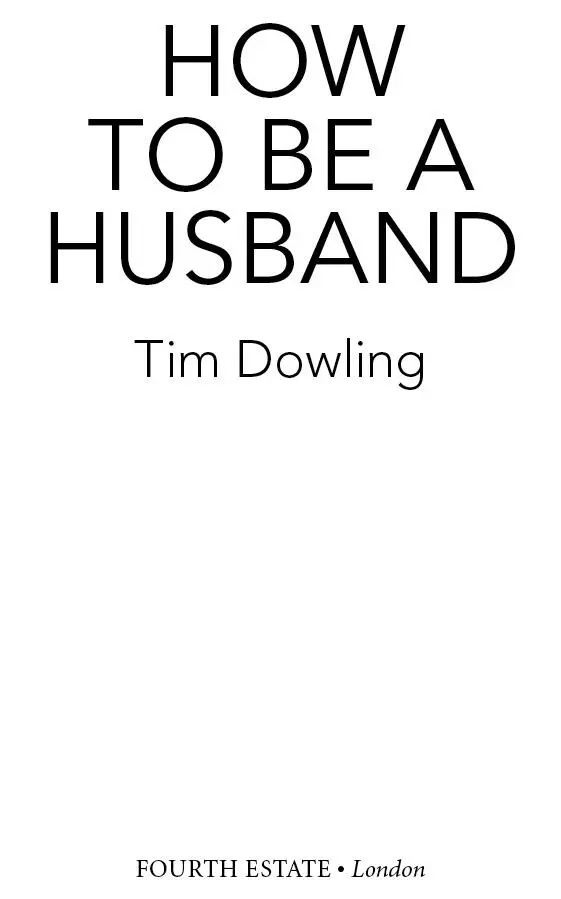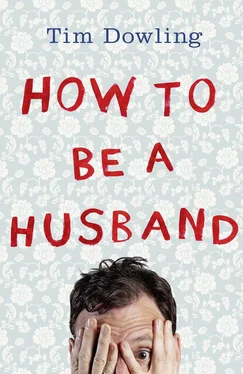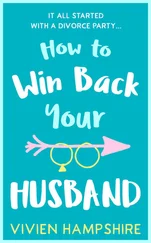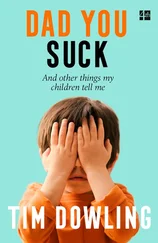
4th Estate
An imprint of HarperCollins Publishers
1 London Bridge Steet,
London SE1 9GF
www.4thEstate.co.uk
This eBook first published in Great Britain by 4th Estate in 2014
Copyright © Tim Dowling 2014
Tim Dowling asserts the moral right to be identified as the author of this work
Seven of the Forty Precepts of Gross Marital Happiness made their first appearance, in slightly different form, in an article in Guardian Weekend magazine from February 2013
A catalogue record for this book is available from the British Library
Cover photographs: (man) David Levene/© 2010 Guardian News & Media Ltd; (wallpaper) Hudyma Natallia/Shutterstock
Chapter illustrations © Benoît Jacques 2014
Jacket design by Keenan
All rights reserved under International and Pan-American Copyright Conventions. By payment of the required fees, you have been granted the non-exclusive, non-transferable right to access and read the text of this e-book on screen. No part of this text may be reproduced, transmitted, down-loaded, decompiled, reverse engineered, or stored in or introduced into any information storage retrieval system, in any form or by any means, whether electronic or mechanical, now known or hereinafter invented, without the express written permission of HarperCollins.
Source ISBN: 9780007527663
Ebook Edition © June 2014 ISBN: 9780007527670
Version: 2017-03-08
To Sophie; who else?
Cover
Title Page
Copyright
Dedication
Introduction
1. The Beginning
2. Are You Compatible?
3. Getting Married: Why Would You?
4. How To Be Wrong
5. Am I Relevant?
6. DIY: Man’s Estate, Even Now
7. Extended Family
8. The Forty Precepts of Gross Marital Happiness
9. Bringing Home the Bacon
10. A Very Short Chapter About Sex
11. The Pros and Cons of Procreation
12. Alpha Male, Omega Man
13. Coming To Grief
14. Staying Together – For Better and Worse
15. Do I Need a Hobby?
16. Fatherhood for Morons
17. Keeping the Magic Alive
18. Head of Security
19. Misandry – There’s Such a Word, But Is There Such a Thing?
20. Subject To Change
Conclusion
Acknowledgements
Also Available …
About the Publisher
 INTRODUCTION
INTRODUCTION
In the summer of 2007 I was asked out of the blue to take over the page at the front of the Guardian Weekend magazine. I say out of the blue, but I’ll admit it was a possibility I’d considered long before the invitation was extended. I therefore received the news with my usual mixture of gratitude and impatience – shocked, thrilled, immensely flattered, and not before time. There was no question of turning down the offer; just tremendous apprehension at the idea of accepting. If I’d thought about wanting it a lot over the years, I hadn’t really given much thought to doing it. What would my weekly column be about?
‘I don’t want you to feel you have to write about your own life,’ read the only email I received from the Editor on the subject. Perhaps, I thought, she doesn’t want me to feel constrained by a particular format, or maybe she was wary because the only time I’d ever stood in for my predecessor, Jon Ronson, I’d written about an ordinary domestic event, and the magazine subsequently printed a letter that said, ‘May I suggest that the mystery smell in Tim Dowling’s house is coming from his own backside as he emanates his natural air of smugness and pomposity?’ Whatever the reason, I felt I had my instructions: write about anything you like, except yourself.
The Editor promptly took maternity leave, and I heard nothing more. The only additional information I received was a date for the first column, in mid-September. As the deadline approached I panicked, and wrote a piece about the dog and the cat following me around the house all day, precisely the sort of thing I’d been warned against. As I hit send I pictured myself having to defend it (‘It’s true! They do follow me!’) at a hastily convened crisis meeting.
Nothing was said, and the column appeared as written. I wondered if the ban on domestic subjects had even been passed on. I decided it didn’t matter, because now I had a full week to get my shit together.
The next column was a tightly wrought spoof apology taking in some recent scandals dogging the BBC, which had the twin advantages of being extremely topical and almost exactly the right length. Two weeks later, however, I suffered another failure of imagination, and at the last minute I wrote about my wife’s amusingly callous reaction when I got knocked off my bike by a taxi. I wondered if it was possible to get sacked less than a month in.
Already I was beginning to feel the pressure of a weekly column; on the following deadline day I found myself in South America on another assignment, jet-lagged and bereft of inspiration. After a lot of handwringing and hair-pulling, I concocted a parody of those book group discussion questions you find at the back of paperback novels, based entirely on the only reading material I had with me.
A week later, in response to a report suggesting that Neanderthals may have possessed the power of speech, I cobbled together a hilarious dialogue between a Neanderthal couple who were expecting the Homo sapiens next door for supper. With more time I might have come up with a better ending, but as I read it over I felt I was finally starting to find my feet.
The panic returned soon enough. The upcoming Christmas deadlines required several columns to be done in advance. Over the next few weeks I wrote almost exclusively about domestic crises – arguments in front of the telly, arguments about the children, the window cleaner, even about the column itself. I filed each one with a sense of failure and a silent promise to myself that I would adhere more closely to the original brief the following week. When I finally managed to write something with a less personal, more sophisticated conceit, I received an email from the Editor, the first real feedback I’d had in months. It said, ‘What happened to the funny wife?’
And that is how I came to be splashing my marriage all over the papers. I never really had time to sit down and consider the ethical implications, if any. I know other people see writing about one’s family as a pursuit full of interesting moral pitfalls, but I lacked the luxury of that perspective. In fact a full six months elapsed before I actually realized what it was I trying to achieve with my new column: I was trying to make my wife laugh.
She is almost the only person who reads what I write in front of me, and I have come to think of her as the planet’s main arbiter of what is and isn’t funny. Even as I was struggling to produce less personal, more abstract columns, I was noticing that she wasn’t laughing at them. She read the Neanderthal one in complete silence in bed one Saturday morning, and then sighed and said, ‘I miss Jon Ronson.’
But she was reliably amused by any column in which she featured, often laughing out loud while reading back her own words.
‘I’m funny,’ she would say, cackling. ‘You just write it down.’
Читать дальше


 INTRODUCTION
INTRODUCTION










